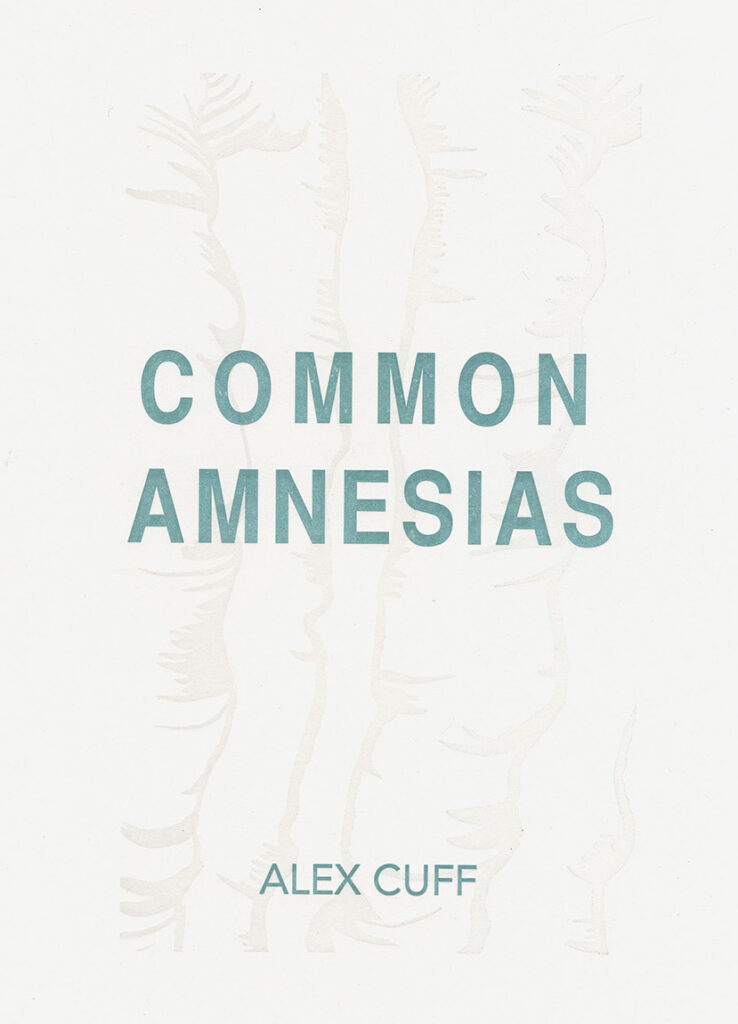Common Amnesias is thrilling. A dizzying marathon through the taboo, the shamed, the disgusting. Cuff takes us far beyond shock value to deep intimacy. Rather than make a parade of shame, her poems seek to protect & value “the girl stored in tupperware / My call to keep her alive.” Cuff writes, “Like the word river spelled backwards, I fall into myself.” In her vertigo, shame’s valuables are strapped to her chest: desire, depression, shitting, the very act of feeling. As she falls backwards, never landing, she grasps for a railing: What to make of my inheritances––personal, familial, medical, cultural, racial? As she repeatedly fails to secure a railing, we overhear her urgency; not just to survive this life, but to properly care for it. Her speaker, like a “woman [who] plants tulips in her yard with a pick ax,” is simultaneously tender & voracious, troubled & troubling. Common Amnesias gripped me, challenged me, & provoked my stitching to come undone. I simply have never read anyone like Cuff.
Shira Erlichman
Common Amnesias is quest through the underworld meets game night. This book points to behaviors that can't be called love or nature, the operations of the body, and what goes unsaid in families. Alex Cuff questions bravery. Thinking of "all the hamsters who have died without reason" and how "the land grab continues", she assembles things irrelevant enough to be poetry: "spuds", "cigarette money", "electrical tape", and a "bathrobe". And then she declares war.
Joshua Escobar
These communities of text came to be and coalesced through the engine of quiet courage. They are brave and kind amid discomfort; they let shame go its petty distance and no further; they are nimble and patient in search of solutions. Alex Cuff’s debut collection of poems fears no feeling and seeks freedom.
Adjua Gargi Nzinga Greaves
Alex Cuff's Common Amnesias is a profound thinking-through of family—what it walls off, what it papers over, and the wondrous precarity of what's left: "My family did not discuss feelings / But my mother would often ask / About my movements / 'How are your bowels?' she'd say / In a tone of near accusation." There are brilliant, cumulative arguments tended in here, among them an appraisal of growing up in an environment (i.e., Long Island) where having an inner life is something to apologize for. Cuff's book is full of wonderfully sharp, quick-witted associations that comment hilariously on the uselessness of the shame they'd have you layer ("when i was nine i said hi in the mirror and was embarrassed"). Or maybe it's not about family at all, but the intelligence that persists beyond anything that would dull it, all those obstacles like "chairs from my hips and doors from my wrists / I walk through the house dislodging." Instant classic!
Jacqueline Waters
